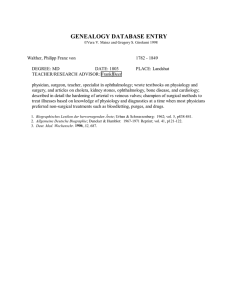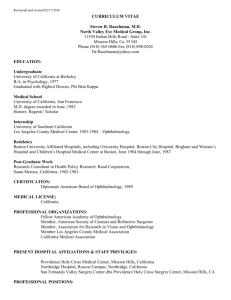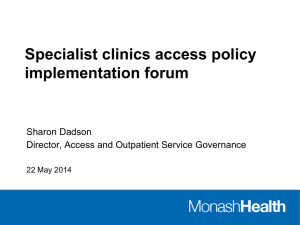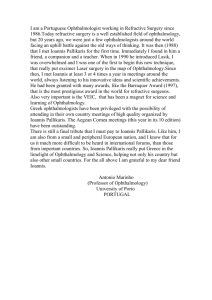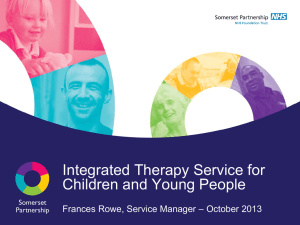Optimising the Primary/Secondary Care Interface in Eyecare Services
advertisement
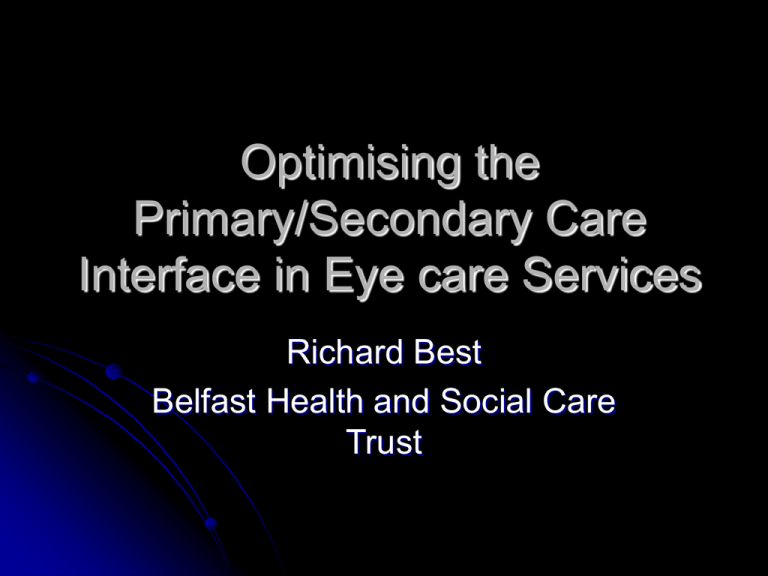
Optimising the Primary/Secondary Care Interface in Eye care Services Richard Best Belfast Health and Social Care Trust Ophthalmology Hospital Eye Service One of the largest outpatient specialties in NHS Rapidly evolving Changed from observation to intervention High volumes of patients Day case surgery Ophthalmology Accurate diagnosis Technological advances More treatments More patients Pressures on Ophthalmology More referrals Ageing population Chronic disease management-diabetes COAG, ARMD Limited resources (Staff/Equipment/Facilities) Guidelines informing practice (NICE) NHS in UK Change in last 10 years Large increase in funding (6%GDP to 11%GDP) Macromanagement tools (access targets) Targets have become standards ? Sustainable Current Problems Demand exceeds supply 10% rise in number of referrals Heavy use of IS to increase provision Financial constraints Solutions Increase funding/increased provision Waiting lists Effective use of resources Look at current model – is it appropriate? Increased Funding/Provision Outpatient waiting lists behave as a complex system that resists change Appear self regulating ‘power laws’ Obey their own laws Similar to traffic jams/avalanches Shorten waiting lists increase referrals Smethurst et al Nature 2001 Ideal Model Patient Flow Tertiary Care Secondary Care Primary Care General Population Actual Model in Ophthalmology Tertiary Care Secondary Care Primary Care Population Primary Care GPs ‘Gatekeepers’ Triage and assessment Provide appropriate treatment Primary Care in Ophthalmology GPs Undergraduate training GPWSi s (postgraduate training) Allied Health Professionals Ophthalmologists Primary Care in Ophthalmology Embrace skills of those working in primary care settings Decentralisation of heavily populated central units Allow recruitment of flexible practitioners to practice in Primary care setting but with strong links to the centre Primary Care in Ophthalmology Refinement of referrals Referral guidelines (Local development) Shared Care for chronic conditions Managed Clinical Networks Primary Care in Ophthalmology Referrals Good referral should ensure that the right patient accesses the right service or specialist at the right time Interventions to Improve Quality of Referrals Triage Referral guidelines Active educational input from local secondary care specialists Structured referral sheets Shared Care Post op reviews Chronic diseases Telemedicine Combined clinics (specialist and primary care team) Managed Clinical Networks Linked groups of health professionals from primary secondary and tertiary care working in a coordinated manner unconstrained by professional and organisational boundaries Thank you
